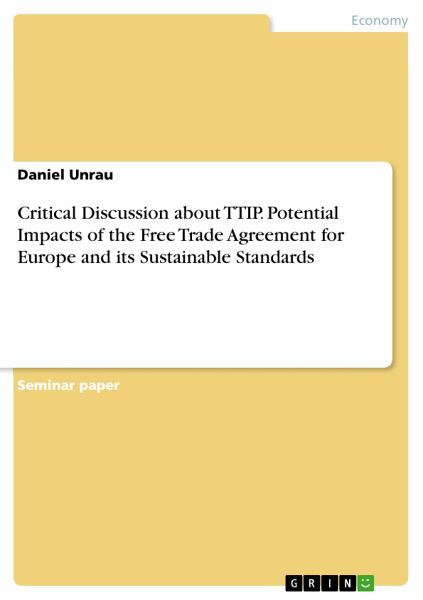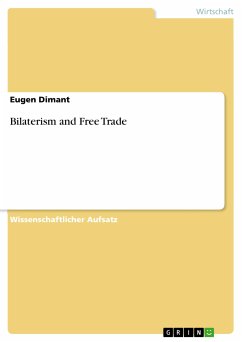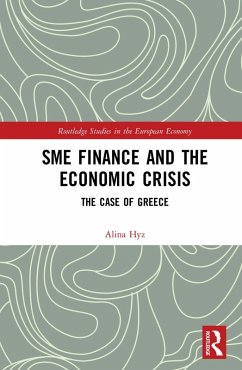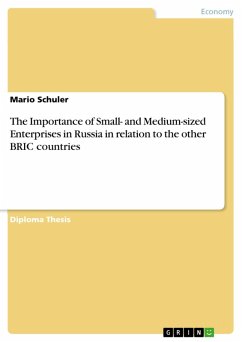
Critical Discussion about TTIP. Potential Impacts of the Free Trade Agreement for Europe and its Sustainable Standards (eBook, PDF)
Sofort per Download lieferbar
16,99 €
inkl. MwSt.

PAYBACK Punkte
0 °P sammeln!
Seminar paper from the year 2016 in the subject Economics - International Economic Relations, grade: 1,7, International School of Management, Campus Munich, course: VWL - International Trade, language: English, abstract: TTIP is a trade and investment agreement being negotiated between the United States and the European Union, since the 17th of June 2013. On that day, US-president Obama and former EU commission president Barrosso announced the beginning of negotiations, which currently are in the 13th round of negotiations. Objective is to increase access to markets on both sides of the atlant...
Seminar paper from the year 2016 in the subject Economics - International Economic Relations, grade: 1,7, International School of Management, Campus Munich, course: VWL - International Trade, language: English, abstract: TTIP is a trade and investment agreement being negotiated between the United States and the European Union, since the 17th of June 2013. On that day, US-president Obama and former EU commission president Barrosso announced the beginning of negotiations, which currently are in the 13th round of negotiations. Objective is to increase access to markets on both sides of the atlantic, by dismantling customs and other trade barriers. Additionally, the agreement is supposed to minimize constraints for commercial services, improve investment safety and equality of competition, and facilitate the entry to public contracts on all governmental levels. In the following, I will analyse and discuss the main arguments of TTIP opponents to discover what the impacts of the free trade and investment agreement would be for Europe. According to the Bertelsmann-Stiftung “all states would benefit from an agreement, and increases in trade with the USA of 20-30 percent per state are expected”. Furthermore, TTIP shall increase the turnover of companies, because of an increasing trading volume, which should positively affect job safety and quality. Studies have also shown that e.g. the german economy will save expenses for customs handling which then could be invested in companies and their work places. Thus, real wage is expected to increase for all educational groups. But also SMEs (small-medium enterprises) should profit, which nowadays cannot affort certification in the US. The federal ministry of economy and energy in Germany promises, there will not be any negative consequences for sustainable development, since it is a prior aim for both parties. The improvement in trade shall not be at costs of social or environment stand-ards, labour law or industrial safety.












